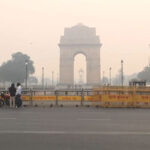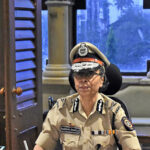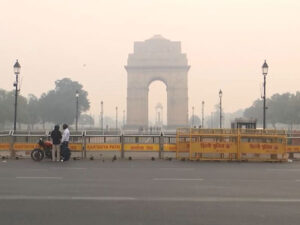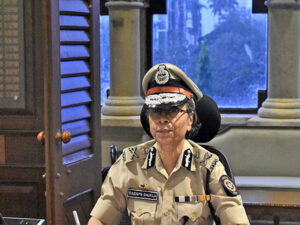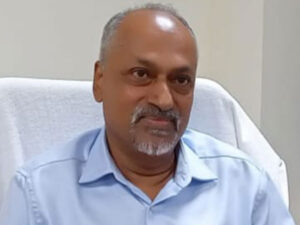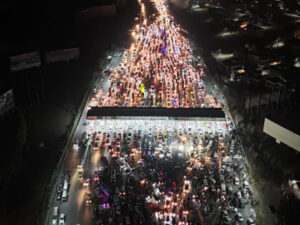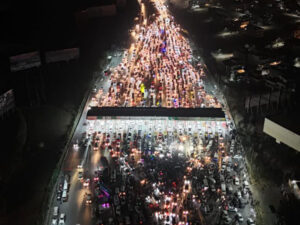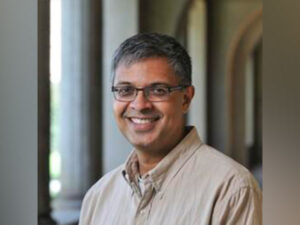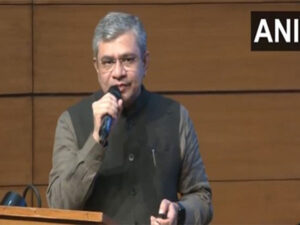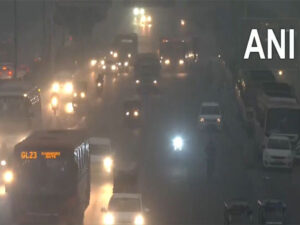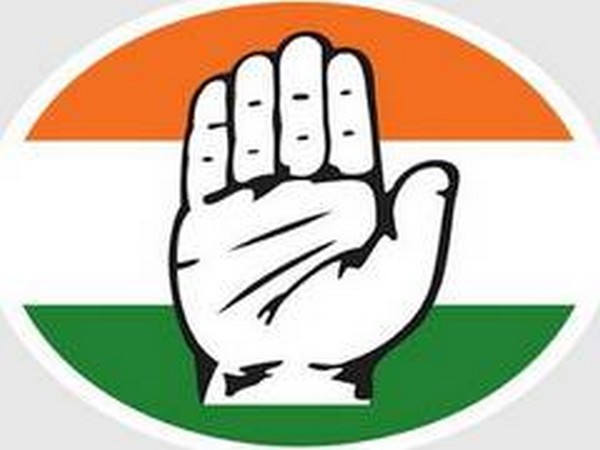
By Prashant Sood
New Delhi [India], March 11 (ANI): The results of five assembly polls came as a shock to the Congress which was hoping to do well to revive its prospects for the 2024 Lok Sabha polls and to fend off the emerging challenge from the Aam Aadmi Party (AAP) and Trinamool Congress to replace it as the fulcrum of anti-BJP politics in the country.
The Congress was on the right side of “anti-incumbency” in Uttarakhand, Goa and Manipur as it was the major opponent of the ruling BJP in these states. And in the electorally-crucial Uttar Pradesh, the party was hoping to turn the tide in the election effort led by party general secretary Priyanka Gandhi Vadra. Congress leaders also strongly spoke against the farm laws which were eventually repealed by the Centre. The party was reduced to a historic low in Uttar Pradesh, making the task of its revival even more difficult if not impossible.
The rise of the Aam Aadmi Party (AAP) in Punjab is another worrying signal for Congress. The Congress finds it difficult to revive itself in a contest that has strong local players and the BJP, Delhi being the latest example. Now with AAP sweeping Punjab and top leaders of Congress including Chief Minister Charanjit Singh Channi and state PCC chief Navjot Singh Sidhu losing their seats, the task of revival in Punjab will also be a big challenge.
With their success in Punjab, AAP leaders are talking about the party being a “national force” and it emerging as a “national and natural replacement” of Congress. They also say that Delhi Chief Minister Arvind Kejriwal “will be the principal challenger of the BJP” in the future. AAP leader Raghav Chadha has talked about Delhi Chief Minister Arvind Kejriwal “being in bigger role of Prime Minister in 2024 if people give an opportunity”.
The Trinamool Congress leaders want to see West Bengal Chief Minister Mamata Banerjee in this role and she has talked about the need of broad opposition unity against the BJP. She has met leaders of Shiv Sena and NCP and has also interacted with Telangana Chief Minister K Chandrashekar Rao and Tamil Nadu Chief Minister MK Stalin. There appears to be competition as also churning in opposition ahead of 2024 Lok Sabha polls and both AAP and Trinamool Congress are keen to be seen as the prime challengers of BJP, a role that Congress has been espousing so far.
The BSP’s decimation in the assembly polls in Uttar Pradesh also points to the party’s dwindling strength and polity in the state getting increasingly bipolar between the alliances led by BJP and Samajwadi Party.
Congress will hold a meeting of its working committee soon to analyse the election results. Upset over the results, Congress G-23 leaders, who had written to Sonia Gandhi seeking widespread reforms including elections at various levels, are slated to meet in the next 48 hours. Party leader Shashi Tharoor, a member of G-23, on Thursday called for reforming the party’s “organizational leadership in a manner that will reignite those ideas and inspire the people”. “One thing is clear — Change is unavoidable if we need to succeed,” he said in a tweet.
The Congress has to elect a president at the culmination of organisational elections this year and the poll outcome will cast a shadow on the process. It remains to be seen if suggestions continue to be made by a section of the party for Rahul Gandhi to again take up the role.
Rahul Gandhi, who lost the Lok Sabha election from Amethi in 2019 and won from Wayanad, said on Thursday that the Congress will learn from the poll results “and keep working for the interests of the people of India”.
The Congress has seen some of its young promising leaders and even a few among the old guard leaving the party over the past several months. While BJP increased its vote share in Uttar Pradesh in this poll, the Congress vote share declined though it was fighting almost all 403 seats after a long gap. Priyanka Gandhi Vadra gave 40 per cent tickets to women candidates and held nearly 200 rallies and roadshows in UP. The party also came up with a youth manifesto. The party won just two seats and 2.33 per cent votes compared to seven seats it won in 2017 when it had fought on 114 seats as part of an alliance with the Samajwadi Party. The Congress had got 6.25 per cent vote in the previous assembly election.
Congress had won 28 seats with 11.65 per cent votes in 2012 assembly polls and 22 seats with 8.61 per cent votes in 2007. The Congress indicated on Thursday that the clashing ambitions of its leaders had hurt the party’s prospects. Party leader Randeep Singh Surjewala said there was need to “seriously introspect, re-examine, re-think” whether the race for political positions “is undermining the position of the party to an extent where we end up helping the cause of our opposition and where we end up causing loss to the Congress party”.
He said this question needs to be answered “not only in Punjab, not only in Uttarakhand, not only in Goa, but across the country”. Surjewala also talked of anti-incumbency in Punjab, which was ruled by Congress. “In Punjab, Congress presented a new leadership through Charanjit Singh Channi who is the son of the soil, but the entire anti-incumbency of 4.5 years under Captain Amarinder Singh could not be overcome and hence people voted for AAP for change,” he said.
In the results of five elections declared on Thursday, Congress won 18 seats in Punjab, 19 in Uttarakhand, 11 in Goa, and five seats in Manipur. Congress will face a tough test this year in assembly elections in Gujarat and Himachal Pradesh. The party has not been able to oust BJP from power for over two decades in Gujarat though it put up a spirited fight in the last polls. In Himachal Pradesh, BJP will seek to buck the pattern of alternate turns at power and replicate its victory in Uttarakhand. Apart from putting its house in order in the two states, Congress will also have to watch for challenges from a resurgent AAP. (ANI)
